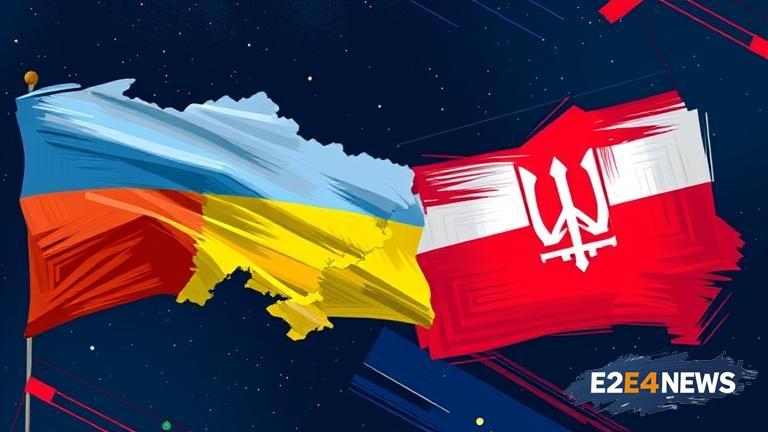The ongoing conflict between Poland and the European Union over refugee aid has taken a dramatic turn, with Poland threatening to veto a proposed EU package worth millions of euros. This move has significant implications for Ukraine, which relies heavily on Starlink internet services provided by Elon Musk’s SpaceX. The Starlink system has been instrumental in maintaining communication and internet connectivity in war-torn Ukraine, particularly in areas where traditional infrastructure has been destroyed. However, Poland’s veto may put this critical access at risk, further exacerbating the humanitarian crisis in the region. The EU had proposed the aid package to support Ukraine and other countries affected by the refugee crisis, but Poland’s objections have thrown the plan into jeopardy. The Polish government has been at odds with the EU over several issues, including refugee policy and judicial reforms. The veto threat has sparked concerns among EU officials and humanitarian organizations, who warn that the consequences of losing Starlink access would be catastrophic for Ukraine. The country’s military, government, and civilians rely on the service to communicate, access vital information, and coordinate relief efforts. Without Starlink, Ukraine’s ability to respond to the ongoing crisis would be severely impaired. The situation has sparked a diplomatic row between Poland and other EU member states, with some accusing Warsaw of prioritizing its own interests over the needs of Ukraine. The EU has urged Poland to reconsider its position, but so far, the Polish government has refused to back down. The dispute has also drawn in other stakeholders, including the United States, which has provided significant support to Ukraine throughout the conflict. The US has urged the EU to find a solution to the crisis, emphasizing the importance of maintaining Starlink access for Ukraine. As the situation continues to unfold, there are growing concerns about the potential consequences of Poland’s veto. If Ukraine loses access to Starlink, it could have far-reaching implications for the country’s ability to respond to the crisis and provide humanitarian aid to those in need. The international community is watching the situation closely, with many calling on Poland to reconsider its position and prioritize the needs of Ukraine. The EU has announced an emergency meeting to discuss the crisis and find a solution, but it remains unclear whether a resolution can be reached. In the meantime, Ukraine’s access to Starlink remains uncertain, leaving the country’s military, government, and civilians on edge. The situation is a stark reminder of the complexities and challenges of international diplomacy, particularly in times of crisis. As the world waits with bated breath for a resolution, one thing is clear: the fate of Ukraine’s Starlink access hangs in the balance, and the consequences of Poland’s veto could be devastating. The international community must come together to find a solution to this crisis, prioritizing the needs of Ukraine and ensuring that the country’s access to critical internet services is maintained. The situation is a test of the EU’s ability to respond to crises and prioritize the needs of its member states, as well as its commitment to supporting Ukraine in its time of need. As the crisis deepens, it is clear that a resolution will require careful diplomacy, compromise, and a commitment to finding a solution that prioritizes the needs of Ukraine.
